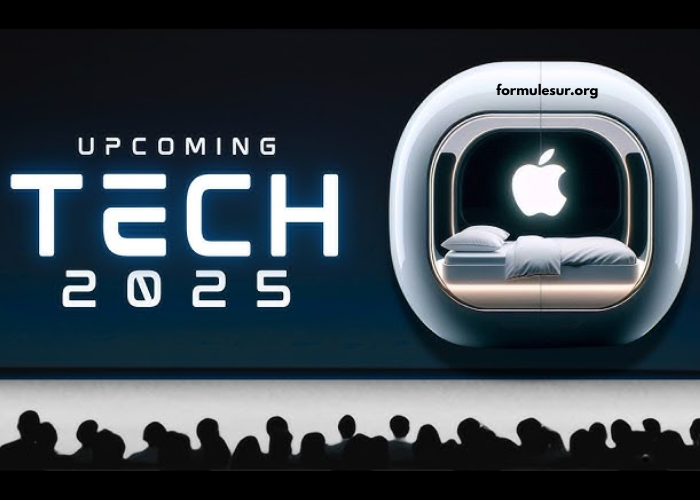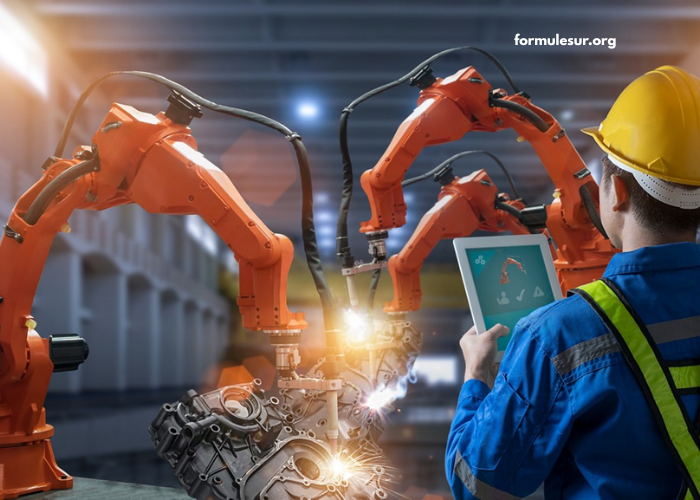As we move deeper into the digital age, 2025 is shaping up to be a landmark year for technology. From artificial intelligence and quantum computing to sustainable innovations and immersive virtual experiences, the pace of transformation is accelerating. In this article, we’ll dive into the top tech innovation trends that are set to reshape industries, redefine user experiences, and unlock new possibilities.
H2: Artificial Intelligence and Machine Learning Evolve Beyond Automation
H3: Generative AI Expands Across Industries
The rise of generative AI is one of the most influential trends of recent years. In 2025, it is expected to further disrupt sectors such as media, design, programming, and healthcare. With tools like ChatGPT, Midjourney, and DALL·E becoming mainstream, businesses are leveraging AI not just to automate tasks but to create original content, code, and solutions at scale.
H3: AI Personal Assistants Become Hyper-Personalized
AI-powered assistants in 2025 will go far beyond voice commands and basic scheduling. These intelligent companions will learn individual behavior patterns, adapt to tone and intent, and offer real-time contextual support—whether it’s in customer service, online shopping, or workplace productivity.
H2: Quantum Computing Edges Closer to Real-World Impact
H3: Breaking Computational Barriers
Quantum computing has long promised to solve problems classical computers can’t, such as drug discovery, material simulations, and logistics optimization. In 2025, quantum hardware and software platforms are expected to reach a critical point where businesses and research institutions start applying them in practical scenarios.
H3: Growth in Quantum-as-a-Service (QaaS)
With cloud providers like IBM, Microsoft, and Google investing in Quantum-as-a-Service platforms, 2025 will see enterprises getting easier access to quantum processing. This democratization will enable more companies to experiment with and adopt quantum computing without heavy upfront investments.
H2: The Rise of Sustainable and Green Technologies
H3: Clean Energy Tech Innovations
The global push toward carbon neutrality is intensifying, and 2025 will witness rapid developments in solar power, wind energy, and battery storage technologies. Breakthroughs in hydrogen fuel and smart grid optimization will play a critical role in the next phase of clean energy adoption.
H3: Circular Economy and Smart Waste Management
In 2025, more tech startups and governments will invest in circular economy initiatives. From AI-powered recycling robots to IoT-enabled waste tracking, technology will drive more efficient resource use and minimize environmental footprints.
H2: Web3 and the Decentralized Internet Gain Momentum
H3: Blockchain Applications Beyond Cryptocurrency
While cryptocurrencies continue to evolve, the real impact of blockchain technology will be seen in areas like decentralized finance (DeFi), supply chain transparency, digital identity, and intellectual property protection. 2025 will be the year when Web3 matures beyond hype.
H3: Rise of DAOs and Tokenized Communities
Decentralized Autonomous Organizations (DAOs) are emerging as a new governance model. In 2025, more online communities and even startups will be governed by token-holders rather than traditional executives, leading to new forms of collaboration and investment.
H2: Extended Reality (XR) Reshapes Human Experiences
H3: Virtual Reality (VR) Goes Mainstream
Thanks to lighter, more affordable, and powerful VR headsets, 2025 will see VR becoming a staple in education, gaming, therapy, and corporate training. Companies are building immersive ecosystems where users can collaborate, create, and learn in real time.
H3: Augmented Reality (AR) in Everyday Applications
AR will be more integrated into retail, manufacturing, healthcare, and navigation. Imagine trying on clothes via your phone, receiving contextual information while walking through a city, or conducting remote surgeries—all in real-time through AR overlays.
H2: Edge Computing and 5G Accelerate Real-Time Data Processing
H3: Smarter Cities and Infrastructure
With 5G networks and edge computing becoming more robust in 2025, smart cities will emerge with connected infrastructure, intelligent traffic systems, and real-time surveillance and safety protocols. Edge computing ensures data is processed near the source, reducing latency and improving efficiency.
H3: Revolutionizing IoT with Low-Latency Solutions
The Internet of Things (IoT) will benefit greatly from edge computing. Devices in factories, homes, and vehicles will become more autonomous, secure, and responsive, thanks to real-time processing at the edge.
H2: Biotechnology and Health Tech Breakthroughs
H3: Precision Medicine Powered by AI
2025 will see a paradigm shift in healthcare, with AI-driven diagnostics and personalized treatments becoming standard practice. Genomics, wearable health data, and machine learning will combine to offer treatments tailored to individual biology.
H3: Rise of Digital Therapeutics and Virtual Care
As virtual health services continue to expand post-pandemic, digital therapeutics (apps that deliver clinically approved treatments) will gain traction. Remote patient monitoring, AI health coaches, and VR for mental health are just some of the innovations making healthcare more accessible.
H2: Automation Expands into New Frontiers
H3: Industrial Robotics and Smart Manufacturing
2025 will be a golden age for smart factories and collaborative robots (cobots). Powered by AI and IoT, these robots will work alongside humans to enhance efficiency, reduce costs, and increase safety in manufacturing.
H3: Autonomous Vehicles and Urban Mobility
The rollout of Level 4 autonomous vehicles is expected to become more widespread by 2025. Smart traffic management systems, drone deliveries, and autonomous public transport will redefine how we move through cities.
H2: Cybersecurity Becomes More Adaptive and Proactive
H3: AI-Powered Threat Detection
In response to increasingly sophisticated cyberattacks, 2025 will see security systems that utilize AI and machine learning to detect threats proactively, predict breaches, and respond in real-time with minimal human intervention.
H3: Zero Trust Architecture as a Security Standard
The “never trust, always verify” model known as Zero Trust Architecture will become mainstream. Organizations will prioritize identity-based access, encrypted communications, and continuous monitoring to keep systems secure.
H2: Human-AI Collaboration in the Workplace
H3: AI as a Collaborative Partner
Far from replacing human workers, AI in 2025 will augment human capabilities. Tools that assist with decision-making, brainstorming, and automation of mundane tasks will allow professionals to focus on strategic and creative efforts.
H3: Digital Twins and Workplace Simulations
Companies will use digital twins—virtual models of physical systems—to simulate, test, and optimize everything from product designs to employee workflows, improving decision-making and reducing risk.
H2: Ethics and Regulation in the Age of Innovation
H3: AI Ethics and Algorithm Accountability
With the widespread adoption of AI, ethical concerns will become even more important in 2025. Governments and organizations will need to ensure algorithm transparency, bias mitigation, and responsible AI governance.
H3: Global Tech Regulation Frameworks Emerge
The push for standardized digital rights, cross-border data privacy laws, and tech regulation will become a key agenda for international organizations. In 2025, we may see the first steps toward a global regulatory framework for digital technologies.
H2: Education and Skill Development in the Digital Era
H3: AI-Driven Personalized Learning
Education in 2025 will be more personalized, flexible, and data-driven. AI will adapt learning experiences to individual students’ needs, optimizing pace, style, and content delivery for maximum engagement and retention.
H3: Rise of Micro-Credentials and Skill Marketplaces
Traditional degrees will be supplemented—or even replaced—by short-term certifications, micro-credentials, and online learning platforms. With constant tech evolution, professionals will focus on continuous learning to stay relevant.
H2: Conclusion: Embracing the Future of Innovation
The year 2025 is poised to mark a new chapter in human advancement driven by intelligent, immersive, and sustainable technologies. From AI and quantum computing to clean energy and digital health, the innovations emerging today will define how we live, work, and interact tomorrow.
Businesses, educators, developers, and individuals must stay informed and adaptable to remain competitive. By embracing these trends, we move closer to a future that is not just technologically advanced but also inclusive, ethical, and sustainable.



